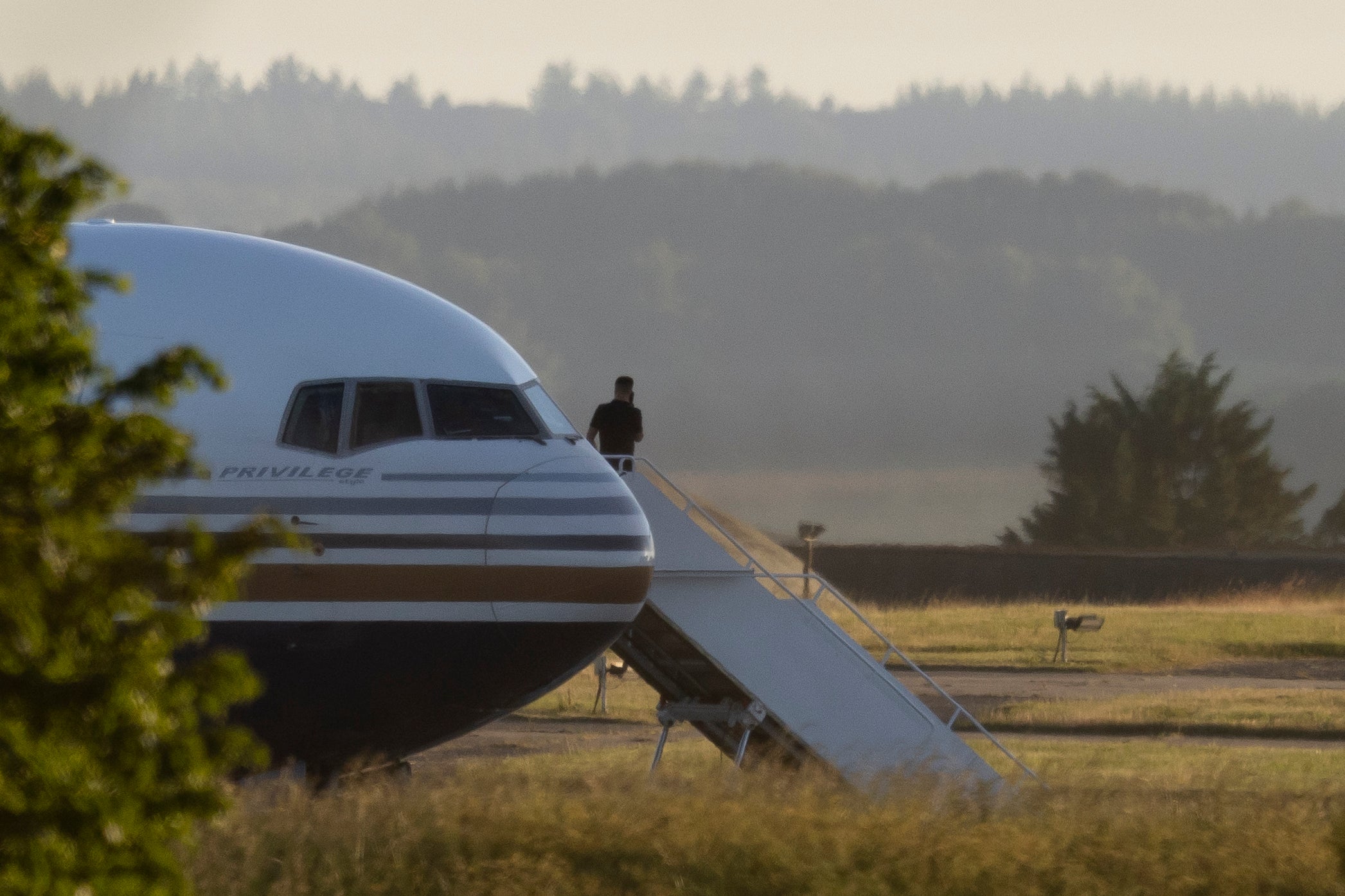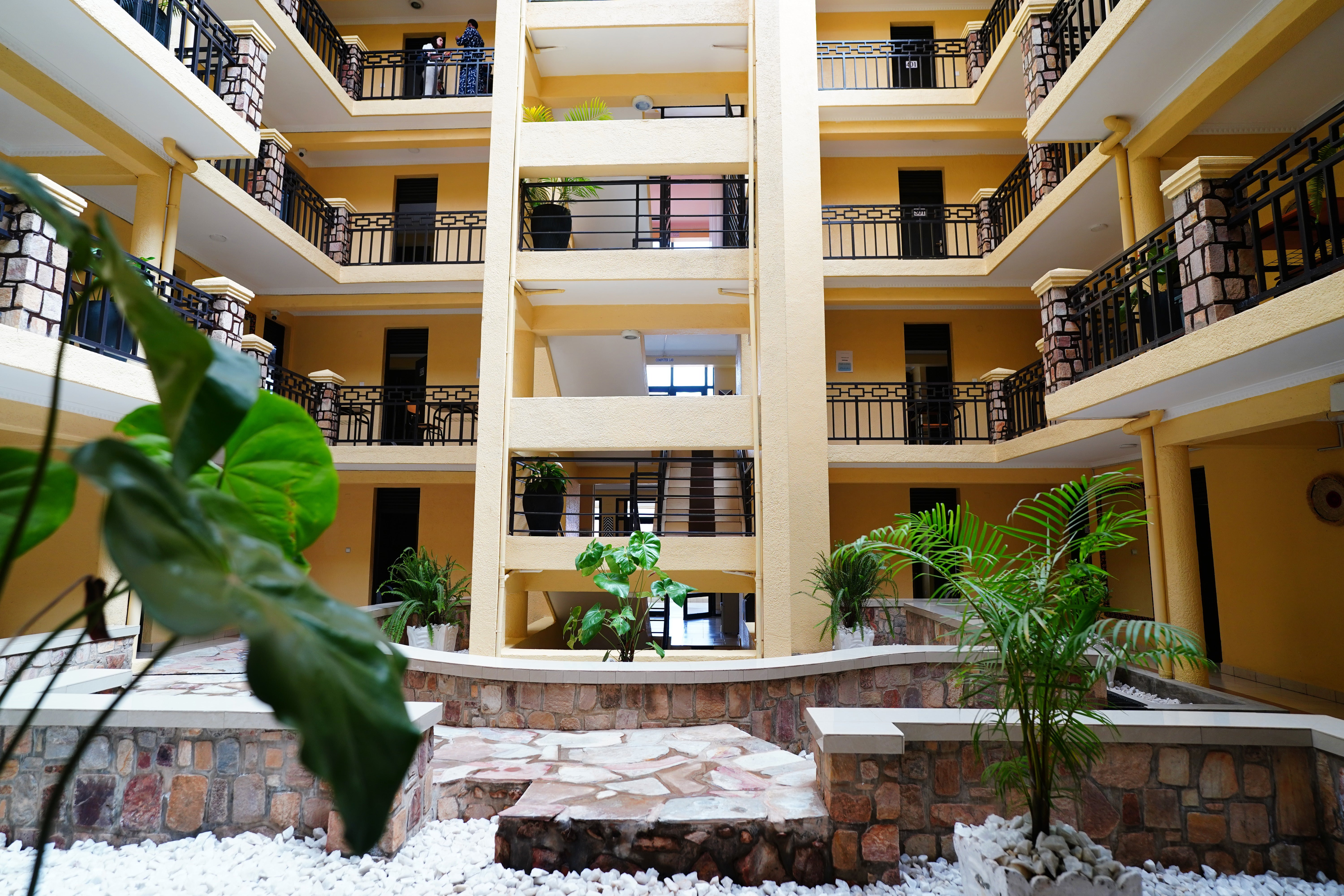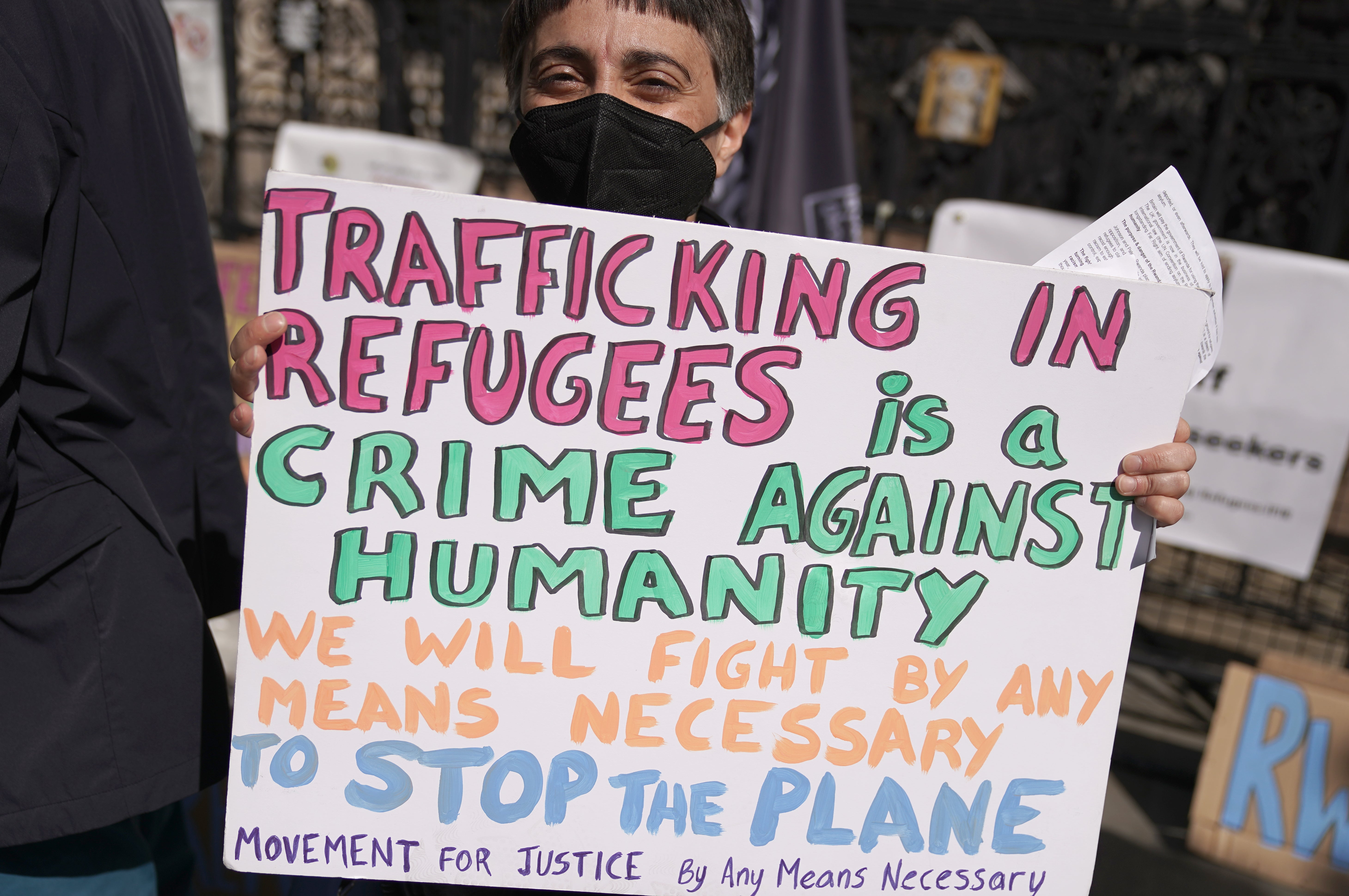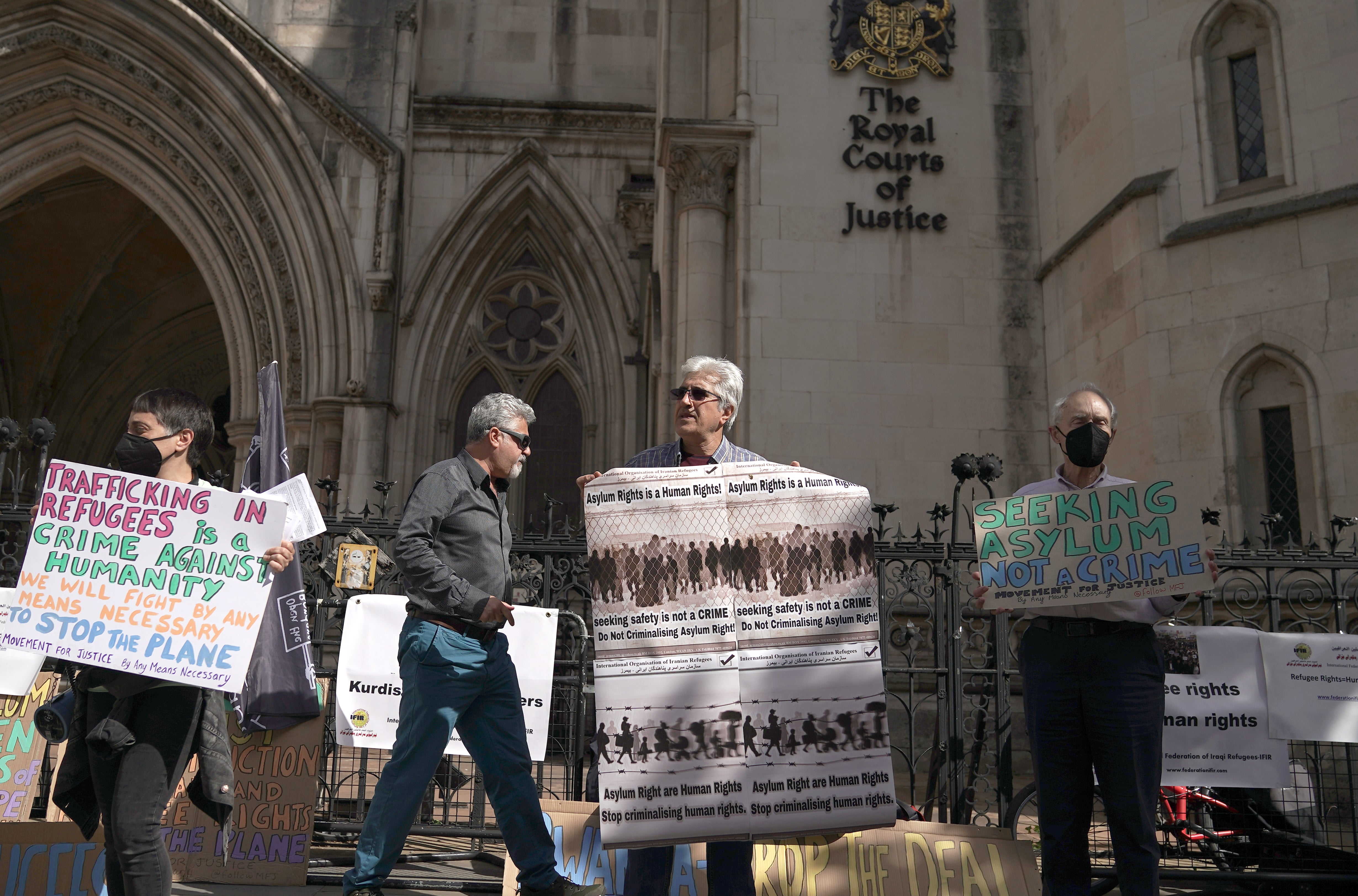Rwanda flight migrants ‘include victims of torture and human trafficking’
Out of the 17 people that doctors conducted clinical assessments for, 14 showed evidence of having been tortured and six were survivors of trafficking

Your support helps us to tell the story
From reproductive rights to climate change to Big Tech, The Independent is on the ground when the story is developing. Whether it's investigating the financials of Elon Musk's pro-Trump PAC or producing our latest documentary, 'The A Word', which shines a light on the American women fighting for reproductive rights, we know how important it is to parse out the facts from the messaging.
At such a critical moment in US history, we need reporters on the ground. Your donation allows us to keep sending journalists to speak to both sides of the story.
The Independent is trusted by Americans across the entire political spectrum. And unlike many other quality news outlets, we choose not to lock Americans out of our reporting and analysis with paywalls. We believe quality journalism should be available to everyone, paid for by those who can afford it.
Your support makes all the difference.Asylum seekers who are survivors of trafficking and torture have been selected for removal to Rwanda, a charity has said.
Medical Justice was contacted by 51 people in immigration detention targeted for removal under the government’s Rwanda scheme. Analysis of 36 of them was included in the review, with clinicians finding at least 26 had signs of previous torture and at least 17 had indicators of trafficking.
Out of the 17 people that Medical Justice doctors conducted clinical assessments for, 14 showed evidence of having been tortured and six were survivors of trafficking.
Fifteen had a diagnosis or symptoms of PTSD and one of the asylum seekers assessed was found to likely have a psychotic disorder, which meant he lacked capacity to instruct his solicitor.
Have you been affected by this story? If so email holly.bancroft@independent.co.uk
One person required urgent investigation to rule out the recurrence of a previous brain tumour, the charity said. Eleven people were also found to have suicidal thoughts in detention, including one who attempted suicide twice.
Medical Justice criticised the “accelerated” process of removal, in which people are notified that they might be removed to Rwanda between two to 28 days of first arriving in the UK.
“Our evidence shows that the prospect of removal to Rwanda is in itself damaging,” they said. “It is exacerbating detained people’s mental health conditions, causing them to experience fear, confusion, uncertainty about their safety and a loss of hope. For some, it has increased their risk of self-harm and suicide.”

Out of the 36 individuals, the majority were Iranian (14), five were Iraqi and five Sudanese. There were also four Syrians, three Eritreans, two Vietnamese nationals, two Egyptians and one Albanian.
They included men, women and age-disputed children or young people and the vast majority had arrived to the UK by boat.
“Our clinicians have described the severe impact of the threat of removal to Rwanda on mental health: Experiences of intense fear, anxiety about the future, profound loss of hope, and traumatic reminders of past experiences of powerlessness deprive people of the sense of safety required for careful assessment and recovery,” Dr Rachel Bingham, clinical advisor for Medical Justice, said.
“These experiences would be harmful in general, but are made even more acute by their being experienced within immigration detention and by a population with a high rate of vulnerability.”

The charity said that there was no specific screening for vulnerabilities prior to asylum seekers getting a notification for removal. Out of the 36 individuals, the charity had access to 23 people’s screening interview records - the interview that takes place at immigration detention soon after the asylum seekers arrival to the UK.
The length of the interviews ranged from eight to 50 minutes.
“The screening interview has long-standing inadequacies in eliciting information about vulnerabilities, it is seldom carried out in a safe and supportive environment for disclosure of histories of trauma, and it has not been adapted for the Rwanda process at all,” their report argued.

During challenges to the government’s first scheduled flight to Rwanda in June, the High Court was told that one of the asylum seekers due to be on board was a torture victim.
Raza Hussain QC, who was representing two people at risk of removal and three organisations challenging the policy, read out a Home Office communique to court which said that his client’s deportation should still go ahead because “Rwanda has a functioning healthcare system”.
“I have just received the news that his removal is going to be maintained... it appears that torture has been considered but the removal hasn’t been deferred,” he added.
The government’s flight was eventually grounded by a last minute interview from the European Court of Human Rights.
The Home Office will be defending their policy in court next week in a trial that will rule on whether the plan is legal.
A second stage of the case in October will look at the selection criteria for those warned they will be removed.
Emma Ginn, director of Medical Justice, said: “We call for the immediate and urgent release from indefinite immigration detention of all those targeted with removal for Rwanda, and for the policy to be abandoned. To not do so, given the medical evidence, means the harm the government is inflicting is premeditated.”
A Home Office spokesperson said that no one would be removed to Rwanda if it was unsafe and claimed the Medical Justice report “features a number of inaccuracies and misrepresentations about the policy”.
“We have been clear from the start that no one will be relocated if it is unsafe or inappropriate for them.
“Our thorough assessment of Rwanda has found that it is a fundamentally safe and secure country, with a track record of supporting asylum seekers.”





Join our commenting forum
Join thought-provoking conversations, follow other Independent readers and see their replies
Comments